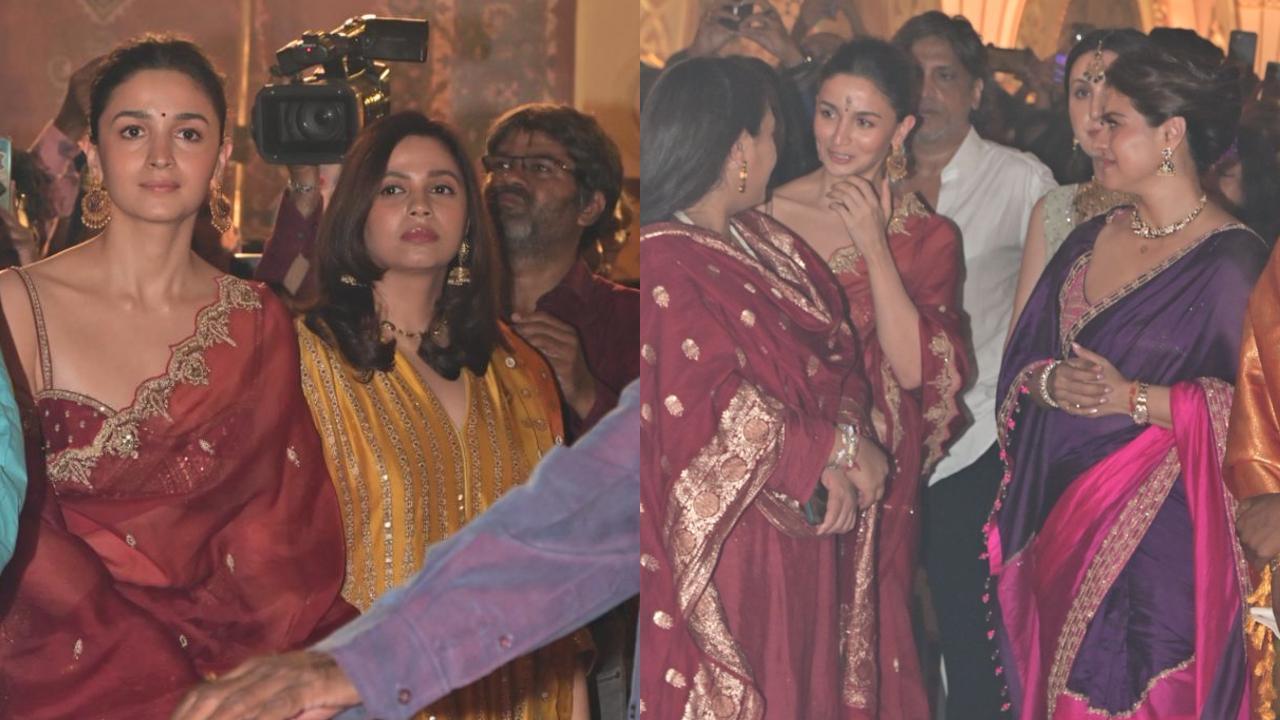
In a cinematic landscape that constantly seeks freshness and innovation, Sreenu Vaitla’s latest film, “Viswam,” offers little more than nostalgia for an era that should remain in the past. The film rides on the shoulders of actors Gopichand and Kavya Thapar, yet its cumbersome narrative style, predictable character arcs, and worn-out plot elements expose its redundancy in contemporary cinema. While the intention was clearly to present a full-bodied entertainment experience replete with action, romance, emotional drama, and comic interludes, “Viswam” clocks in at 155 minutes of an erratic storytelling approach, posing a challenge even to viewers uninterested in logical syntax.
The film greets audiences with an explosive start which quickly reveals the storyline’s familiar undertones. A terrorist manages to permeate political and academic systems across the Telugu states, his intentions laid bare through the actions of a young student orchestrating a bomb blast in a local restaurant. The narrative further leans on the oft-utilized trope of India versus Pakistan dynamics, coincidentally aligning itself with religious motifs to rouse certain viewer sentiments.
In a sporadic fashion, the film pivots to a subplot involving a political assassination. Here, the brother of the deceased political figure finds himself manipulated by the terrorist, introduced earlier, who drives him toward a strategic yet lethal mission. Despite assumptions that dismantling a terror network could induce nail-biting tension, “Viswam” treats this element with nonchalant indifference, reverting to it only as a cursory plot device around which it hastily constructs its multifaceted cast.
Our protagonist, Gopi, portrayed by Gopichand, leaves an indelible initial mark, portraying himself as Bul Reddy’s son. His demeanor portrays an untamed rage towards anyone disrespecting his father, using language fraught with Telugu slang best left undescribed. Miraculously, Gopi transitions his cousin Jali Reddy (Prudhvi) from tenant to landlord, compelling an abrupt power shift over Jali’s former employers.
The expanding plotline introduces a slew of additional characters such as Bachiraju (Sunil), a politician-in-training, his assistant Deekshitulu (played by Rahul Ramakrishna), and a political strategist (Srikanth Iyengar) whose catchphrase “out of the box” serves a dual function: unconventional advice and a literal box of spirits. Their dialogues brim with rhymes and wordplay, yet fail to forge lasting impressions or humor.
.
Jointly penned by Sreenu Vaitla, Gopi Mohan, and Bhanu-Nandu, the script dims in comparison to Vaitla’s preceding box-office successes, missing the marks of entertainment and engagement it perhaps sought to achieve. Consider one example: a misguided attempt at humor where a character mistakes old, shriveled fruits for luxurious dry fruits.
The narrative introduces Samaira (Kavya Thapar), a stylist whose ulterior motives include swindling production funds under the guise of fashion costs. Her subplot unfolds in Italy, yet the reconciliation of her ways predictably follows a rescue-at-the-last-minute trope, courtesy of the film’s hero.
As the film unfolds, the peril of the ominous terror threat remains largely dormant amongst the swarm of trivial comedic sketches, emerging only in time for the approaching intermission. An emotional subplot concerning a young girl’s welfare also makes its way into the film, predictably concluding with the protagonist emerging as her savior, an emblematic heroism too well worn by now.
While some of Sreenu Vaitla’s earlier films like “Dookudu” and “Venky” left memorable impressions owing to their humor, “Viswam” largely misses this mark. An attempt to rekindle past glory through an elaborate train scenario fails to deliver, burdened by a rigid, poker-faced performance from Vennela Kishore amidst a cast failing to rise above mere mediocrity.
Supporting actors, including Jishu Sengupta and Sunil, maintain a surface-level engagement with their roles. Kavya Thapar’s role limits her contribution to the film largely to her allure rather than acting prowess, with scenes showcasing misaligned dubbing exacerbating the problem. Yet, a brief flash of ingenuity appears with Priya Vadlamani’s character, whose action-infused sequence provides a refreshing, albeit fleeting, reprieve from an otherwise male-centric narrative.
Ultimately, “Viswam” lugs along an outdated, labyrinthine narrative weighed down by tropes of yore, leaving it as an unwelcome relic of the past. Despite its hefty ambition of capturing a slice of diverse genres, the execution feels like an artifact from decades past—a missed opportunity for a vibrant and evolving film landscape.










